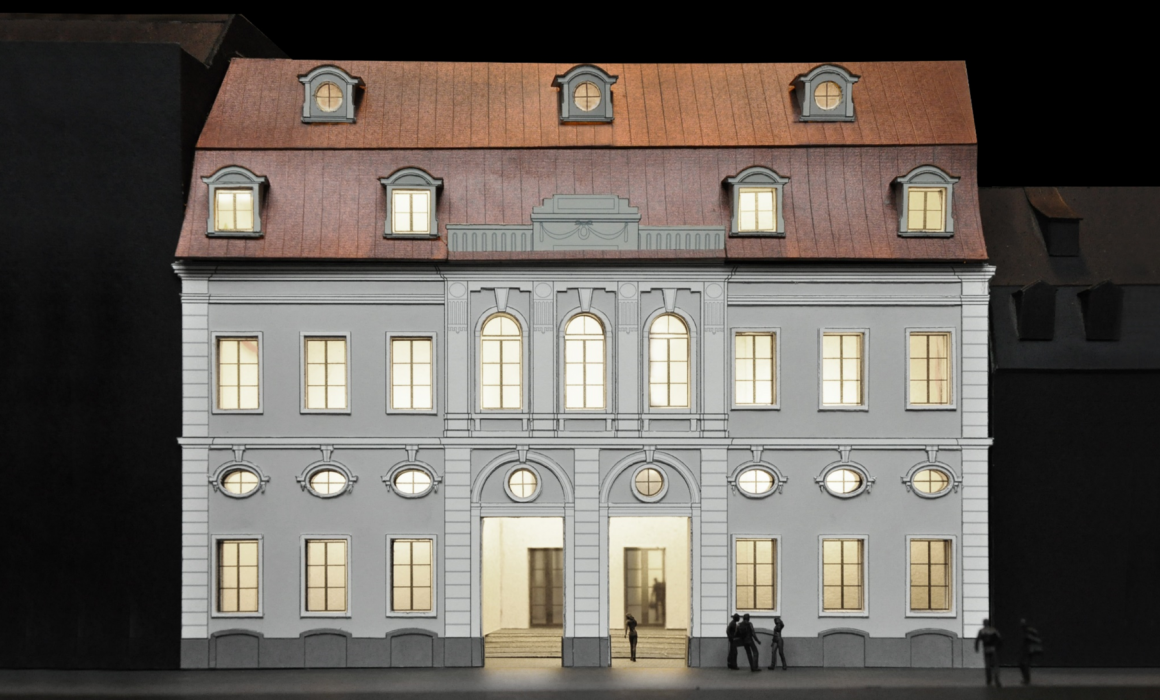€15 million granted for the renovation of the Wagner Theatre
2023 has started with important news for the project of the Renaissance of the Wagner Theatre: funding of €15 million from the Emission Trading Instrument has been approved and work has started on the technical design of the building.
In autumn 2022, Riga Richard Wagner Society successfully participated in the competition “Greenhouse gas emission reduction in architectural monuments of national importance” announced by the Latvian Environmental Investment Fund. At the very end of 2022, a positive decision was received on the allocation of €15 million from the Emissions Trading Instrument (ETS), which was the maximum funding available for a single project in this competition. The project is co-financed by funds from the German government in the amount of €5 million. Currently, €20 million has been committed for the reconstruction of the Wagner Theatre, which will bring the building to a so-called “grey finish” – the building’s structures will be renovated, the external envelope will be insulated, internal and external networks will be replaced and energy-saving systems will be installed. The technical design of the building started in February this year, and the building permit is expected by the end of this summer. A total of €40 million is needed for the reconstruction of the Wagner Theatre – there is still a gap for interior works, restoration works and theatre technology, so fundraising from various foundations and private donors is ongoing.
Last year, the main contractor, SBSC, was selected through a public tender process, with Sarma un Norde Arhitekti as the main project designer, and Būves un Būvsistēmas as the engineer and construction supervisor. Zaigas Gailes birojs has been hired as a subcontractor for the architectural and interior design. Experts from other countries have also been brought in – for example, theatre technology solutions will be developed by Theater Advies from the Netherlands, while Nagata Acoustics, headed by Yasuhisa Toyota, who have been involved in the design of the Elba Philharmonic and the Paris Philharmonic, as well as many other notable projects, will act as consultants on theatre acoustics.
The vision of the project “Renaissance of the Wagner Theatre in Riga” is to create a European beacon of culture in Riga. Over the next few years, the unique 5000 square metre building ensemble in Old Riga will be renovated and given a new lease of life. The importance of the project is also confirmed by the patrons of the Wagner House restoration project – Egils Levits, President of Latvia, Frank-Walter Steinmeier, President of the Federal Republic of Germany, and Eva Wagner-Pasquier, great-granddaughter of Richard Wagner and former artistic director of the Bayreuth Festival.
The restoration of the Wagner House will bring a number of significant benefits, not only in terms of the diversity and accessibility of cultural events for the people of Latvia, but also in terms of strengthening the image of Riga and Latvia as a cultural centre and the link with Richard Wagner, who was Kapellmeister at the House for two years (1837-1839). The project will not only renovate the building and the theatre hall, but also create masterclasses and a museum. The Wagner House will realise Wagner’s vision of “GesamtkunstWerk21” – an incubator for all art forms that will become an international centre for young artists worthy of the 21st century.
The project “Reducing greenhouse gas emissions at the Riga Wagner House”, 4 Riharda Wagner Street, Riga, LV-1050, by renovating and restoring the Riga Wagner House” is supported by the Emissions Trading Instrument and the German Bundestag.



